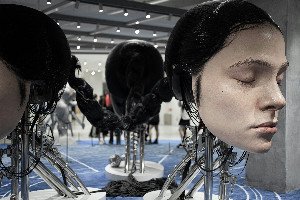Jacqueline Gigan
The Effect of Perceived Locus of Control on Learned Helplessness: A Multivariate Analysis of Variance
Introduction
The effect of perceived locus of control on learned helplessness: a multivariate analysis of variance. Investigate how perceived control (music) and locus of control influence math task performance and learned helplessness. A MANOVA study with undergraduates found no significant effect.
Abstract
The purpose of this study was to determine the effect of the ability to control the on or off status of music being played while performing a mathematical task on task performance by participants high or low on locus of control. 36 undergraduate students at Western University participated in the study. Each participant was provided with a nine-page booklet that included a letter of information, consent form, and a debriefing form. Within the booklet included Rotter’s I-E scale to measure for external locus of control and a set of 12 math questions. Half the participants were exposed to a control condition that included listening to music through a set of headphones while completing the mathematics questions. Half the participants were exposed to an experimental condition that was identical to the control condition, however this group had the choice to turn the music off any point throughout the task. A two-way MANOVA showed that there was no significant main effect of situational control or locus of control on performance nor did these predictor variables interact. Results are discussed in terms of past and future research, and limitations.
Review
This study aimed to investigate the influence of perceived situational control and individual locus of control on task performance, specifically framed in the context of learned helplessness. The experimental design involved manipulating participants' ability to control music playing during a mathematical task, while also measuring their pre-existing locus of control using Rotter's I-E scale. The research question is relevant to understanding the dynamics of perceived autonomy and its impact on engagement and performance. The conceptualization of situational control through the music manipulation is a creative approach to induce a sense of control or lack thereof. However, several methodological aspects described in the abstract warrant significant concern. The sample size of 36 undergraduate students is notably small, which severely limits the statistical power of the analysis and the generalizability of any findings. This is particularly problematic for a multivariate analysis of variance (MANOVA), which typically requires larger samples to detect effects. Furthermore, the description of the dependent variable as simply "task performance" is vague; it is unclear whether this refers to accuracy, speed, number of problems attempted, or a composite score. More critically, the application of a "two-way MANOVA" for what appears to be a *single* dependent variable ("performance") is statistically inappropriate. A MANOVA is used when there are multiple, related dependent variables. If performance was measured along a single dimension, a two-way ANOVA would be the correct analysis. This suggests either a misapplication of statistical tests or an incomplete description of the dependent variables. Details regarding the type, difficulty, and duration of the mathematical task, as well as the characteristics of the music played, are also missing and crucial for replicability and interpretation. Ultimately, the study reported no significant main effects of situational control or locus of control, nor any interaction, on performance. Given the very small sample size and the potential misapplication or misreporting of the statistical analysis, these null findings should be interpreted with extreme caution. It is highly probable that the study was underpowered to detect any existing effects, rather than truly demonstrating an absence of effect. Future research should prioritize a substantially larger sample size, clearly define and measure multiple dependent variables if a MANOVA is indeed intended, and provide comprehensive details regarding the experimental stimuli (e.g., music type, task characteristics). Clarification on the specific measures of "task performance" and the rationale for using a MANOVA with what appears to be a single outcome variable are essential for the validity and interpretability of such findings.
Full Text
You need to be logged in to view the full text and Download file of this article - The Effect of Perceived Locus of Control on Learned Helplessness: A Multivariate Analysis of Variance from The Huron University College Journal of Learning and Motivation .
Login to View Full Text And DownloadComments
You need to be logged in to post a comment.
Top Blogs by Rating
Electro: The Art of Engineered...
By Sciaria
The Invisible Architects: Are...
By Sciaria
The Invisible Hand of Defaults...
By Sciaria
Favorite Blog
The Collective Gasp: Why Live...
By Sciaria
The Evolution of Knowledge in...
By Sciaria
Whispers from the Walls: Unloc...
By Sciaria
Related Research
Hubungan kompetensi profesional dan kesesuaian pekerjaan terhadap penghasilan bulanan lulusan pendidikan tata rias
Penguatan keterlibatan warga negara berupa political voice dan civic activity melalui komunitas kewarganegaraan
Lähisuhdeväkivallan riskinarvioinnin haasteet poliisiorganisaatiossa
Share
Notice Board
- VARHAISKASVATUKSEN OPETTAJAOPISKELIJAN HARJOITTELUNOHJAUS PäIVäKODIN TYöYHTEISöSSä
- ESG CONTROVERSY AS A MODERATOR OF THE IMPACT OF ENVIRONMENTAL, SOCIAL, AND GOVERNANCE INDICATORS ON HIGH-PROFILE COMPANIES' PERFORMANCE IN ASIA
- RANCANGAN RUMAH SAKIT LAPANGAN TANGGAP BENCANA DENGAN PENDEKATAN ARSITEKTUR ADAPTIF





